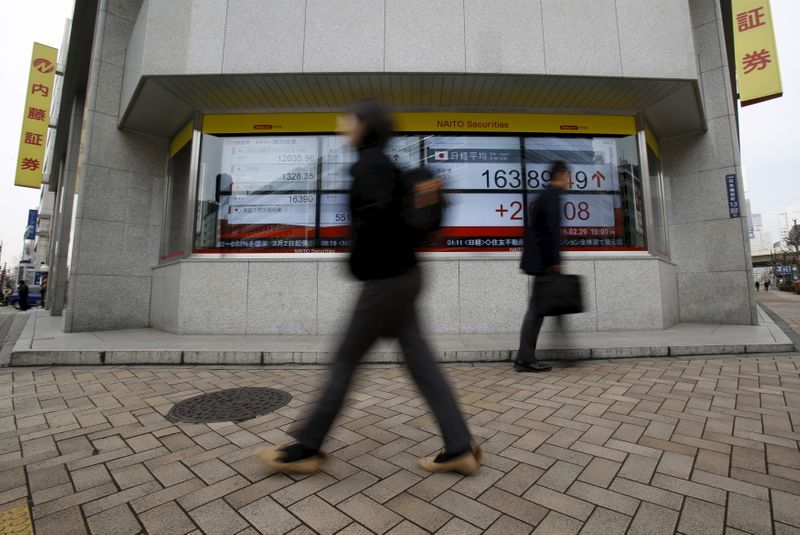By Marc Jones
LONDON (Reuters) -World shares struggled on Tuesday amid new COVID lockdowns in Europe and Senate runoff races in Georgia that will affect incoming U.S. President Joe Biden's ability to pursue his preferred economic policies.
Wall Street suffered its worst start to a year since 2016 on Monday and with volatility gauges up, the euro up and Germany expected to follow Britain with a lockdown extension, European equities were under pressure. (EU)
Markets were also watching to see whether Tuesday's Georgia run-off election enable the Democrats to flip both Senate seats and disrupt what markets view as a delicate political balance in Washington.
"The result could be quite crucial on how much leeway Biden has to push his own agenda," said Wells Fargo (NYSE:WFC) Asset Management's global head of multi-asset solutions, Matthias Scheiber.
Markets are likely to "move on" if the vote sees Republicans maintain control of the Senate, Scheiber said. A Democrat win would see additional fiscal stimulus priced in as well as potential additional regulation for the energy and tech sectors.
"We could see quite a mixed market," he said. Investors having been increasingly looking to hedge their equity positions following the recent strong rally, he said.
There was focus on the currency markets again as the dollar's slide continued.
China raised its official yuan exchange rate by the biggest margin since abandoning its peg in 2005, which helped support demand for other currencies and kept MSCI's emerging-market currency index near the record high it had set on Monday. [EMRG/FRX]
In the offshore market, the yuan strengthened as far as 6.4419 for the first time since June 2018. It started the week at 6.4944.
"If the Chinese currency is going up, it's providing a degree of support for Asian currencies in general, and I suspect that's why the U.S. dollar is partially reversing the gains that we saw from Wall Street time," said Ray Attrill, head of FX strategy at National Australia Bank in Sydney.
"It's a very big move by any historical yardstick, and I don't think you can ignore that."
The dollar index weakened 0.2% to 89.731. It dropped as low as 89.415 on Monday for the first time since April 2018, but ended the day with a 0.1% gain after U.S. stocks slid.
The euro rose 0.2% to $1.22765 after reaching $1.231 on Monday. The British pound regained 0.2% to $1.3573 having tumbled the previous day after the UK's COVID surge had forced another nationwide lockdown.
GEORGIA ON MARKETS' MIND
In Asia, MSCI's broadest index of Asia-Pacific shares outside Japan pulled back from a record high. Australian stocks fell 0.3%. Chinese shares ended higher.
In Hong Kong, China Mobile, China Unicom, and China Telecom rallied by more than 6% after the New York Stock Exchange suddenly abandoned plans to de-list the companies' shares following a U.S. executive order.
Japanese shares lost 0.3% after the government said it would reach a decision on a state of emergency for Tokyo and surrounding cities on Thursday to curb record coronavirus infections.
U.S. S&P 500, Nasdaq and Dow Jones stock futures all edged up about 0.2% after Monday's falls (N).
Both Georgia elections are tight and the results may not be immediately known, which could lead to a repeat of the chaotic vote re-counts after the U.S. presidential election in November.
Outgoing Republican President Donald Trump's call to pressure Georgia's top election official to "find" votes to overturn his loss to President-elect Biden in the state has also unnerved some investors.
In commodity markets, oil futures were steady as traders awaited a meeting later on Tuesday where major crude producers are set to decide output levels for February.
U.S. crude futures were higher at $47.96 a barrel. Brent futures edged up 0.7% to $51.47 per barrel.

Gold also gained, inching up 0.2% to $1,946 per ounce . Cryptocurrency Bitcoin steadied at 31,500 after a sharp drop overnight. [GOL/]